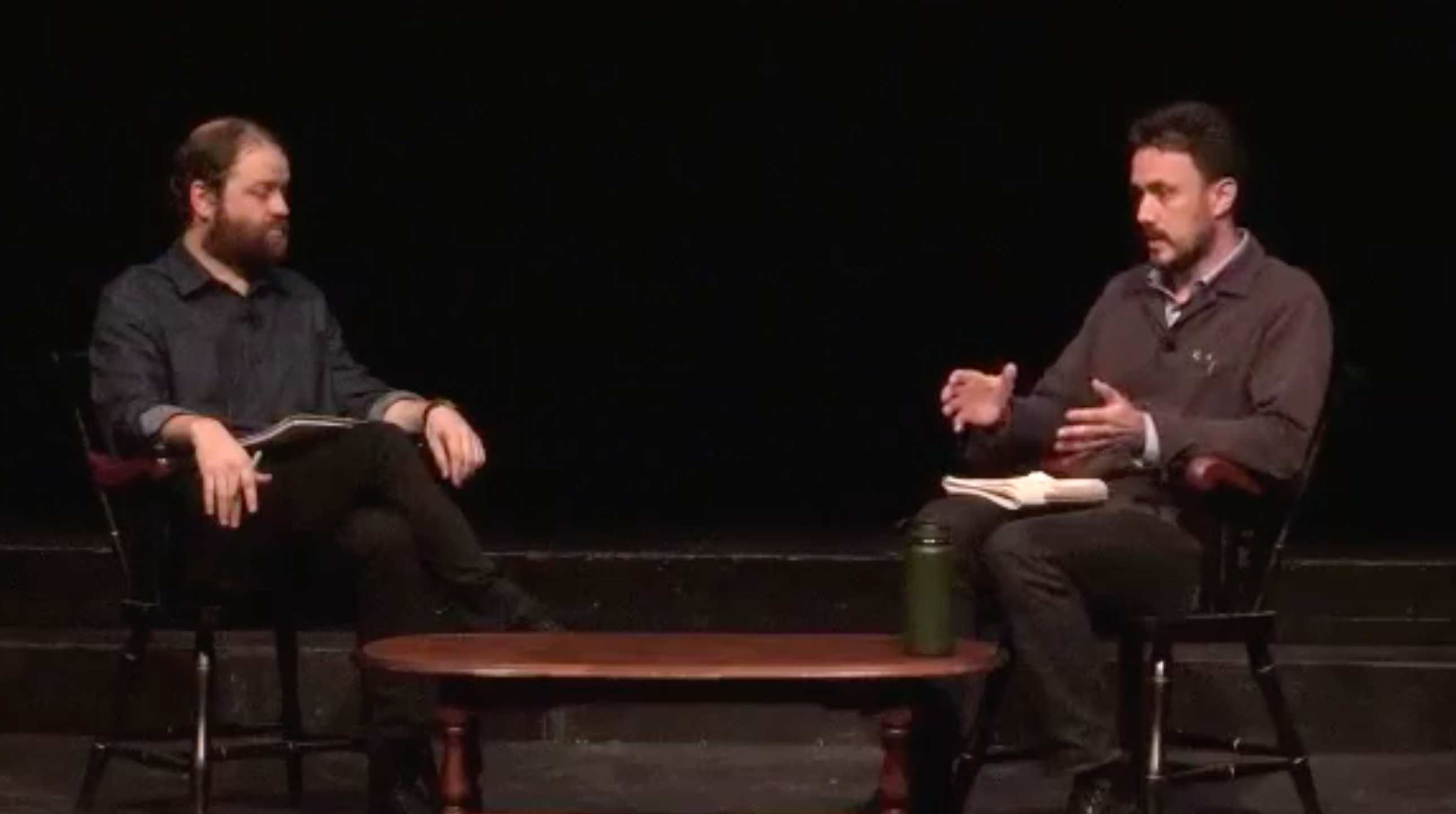Olivia Papp ’23
Features Editor
Trinity’s new Social Justice Initiative presented a Lecture on Wednesday, Nov. 3 titled “No One is Watching: Jail Expansion in Upstate NY.” The talk, which marks the Social Justice Initiative’s third lecture, was delivered in the Austin Arts Center by American Studies Professor Jordan Camp and visiting author and activist Jack Norton.
Jack Norton is currently a research associate at the Center on Sentencing and Corrections at the Vera Institute of Justice. Norton works on the project In Our Backyards which investigates the ways in which counties in America use their local jails. Norton used to be a fellow at the Center for Place, Culture, and Politics at the City University of New York (CUNY) Graduate Center. Norton earned his Bachelor’s degree in geography and humanistic studies from McGill University, his Master’s degree in geography from the University of Washington, and a PhD in Earth and Environmental Sciences from the CUNY Graduate Center.
The Trinity community was excited to welcome such an esteemed guest onto campus to be featured in the third lecture of the series. The focus of this talk was on how Norton’s work has shown that the prison industrial complex has shifted from metropolitan areas to more secluded areas in rural landscapes. In these rural landscapes, Norton argues that jails have been multiplying in extreme amounts.
Norton reflected on his upbringing in a small rural town in upstate New York, as he mentioned he always wondered “why is this place the way it is? How is it changing? It’s not a question of where, it’s a question of why and how?” He was interested in his hometown and in researching why the landscape of his hometown is different than the way it was when he was a child. This initial research question led him to looking at prison construction because New York State built thirty-nine prisons between 1982-2001. These prisons were in rural areas in upstate New York, the district in which he grew up. Norton described the next phase of his research being centered around the question: “why is this happening…why now?”
As this jail incarceration has risen all around the U.S., there has been this notion of the quiet jail boom. The quiet jail boom speaks to the rising numbers of incarcerated individuals in over three thousand rural counties. For decades now, jails have been renovated to much larger sizes. Norton described these jails as the biggest investment which a county could possibly make. As such, these counties are going into debt and will continue to be in debt for twenty to thirty years. Thus, for twenty to thirty years there needs to be a continued investment in these jails. What was once a jail in that could hold thirty people, now is holding three-hundred people and more. These jails are being used as state prisons. Once these huge jails are created in rural areas, there is a demand for revenue streams to offset the costs of building the jails.
“One of the lessons I’ve taken from this research and work is to see the jail as a problem, as a bigger structure – a problem of social investment,” Norton reflected. It is rare for people to be talking about the new biggest investments which is the business of locking poor people up in jail and keeping them out of society. “The jail, at this point, is not just about criminalization,” said Norton.
“The criminalization of poverty is reflected in the jail number,” remarked Norton. There are divestments in many communities which is a contributing factor to this quiet jail boom.
“I spent a lot of the pandemic in my hometown. I was in a country with two jails, one prison, and no hospitals during the pandemic. All this investment was in the wrong infrastructure to deal with a pandemic,” noted Norton. A jail or prison would undoubtedly make the pandemic worse, as many people at that time who were being criminalized were in a concentrated jail for perhaps a long period with an incredibly high chance of getting a dangerous virus.
“The fact that we have been building all of this infrastructure just to shorten people’s lives during the pandemic scared me,” said Norton. From Norton’s lecture, it remains clear that there has been much social investment on shortening these people’s lives.
At the end of the conversation, Norton spoke about his research process. “I want to emphasize I’m a real believer in grounded research,” said Norton. Norton extolled the importance of talking to people who had experience with these symptoms directly. These people are those who are directly affected by the prisons as well as people who are involved in building the jails.
“Growing up in a small town, you don’t realize that you are at the center of these processes, but actually it’s important to know that sometimes you are at the center of these processes,” said Norton. The speaker encouraged us to not underestimate the power of questions and our thoughts. Norton leaves us with the notion that we should always ask questions, be open, and value the process of fieldwork.
Trinity’s Social Justice Initiative now has a website where each of the four lectures can be viewed.






+ There are no comments
Add yours